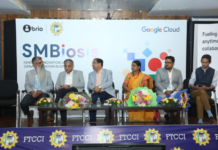If COVID-19 creates ambitious digital transformation projects in your company, CFOs perhaps need to conduct a sharp check on mindset and capabilities. Technology is simply about empowering people to work better. It can be a good differentiator on the market as it is on the production floor.
The pace of change that we see today is the fastest that we have ever seen and probably the slowest that we will live to see (COVID-19 notwithstanding). The engine that is powering this change is technology.
It never amazes us to see how technology bridges the gap so quickly to fill any little opportunity that we give it. Coronavirus is a setback for the world but look at how information technology has seized the opportunity by converting the fence-sitters on virtual offices, e-meetings and e-learning, helping keep some action alive in the economy. Maybe, it is more by default than by design, nevertheless, it has been a defining moment for the proliferation of technology and its application.
I believe that this is also the time for CFOs to partner with CTOs and other business leaders to accelerate their company’s digital transformation agendas. This is one of the quickest (not necessarily, the easiest) ways to increase the efficiency of businesses, at a time when growth will not be easy to come by.
In an environment where enterprise resource planning ( ERP) environments, integrated networking and cloud computing are becoming recognized standards, it is time for CFOs to consider which of the other technologies and solutions will offer tremendous value from here on.
The following characteristics would be important not only for the CFO, but also for the financial leadership as a whole:
Tech-savvy:
So much is happening on the technology front, and as a CFO who has a crucial role to play in digital transformation, you need to be aware of what’s on offer. If it’s the blockchain, the Internet of Things, Robotic Process Automation, Big Data Analytics, the CFO has to be in sync with the ever-changing technology environment. Equally critical is the understanding of the programs, the scale-up possibilities and the use of test cases. The mindset to constantly scan the world for emerging technological approaches, information, expertise and skills that can help business is tech-savvy at work.
Innovation and change of mind:
CFOs are aware that organizations need innovation to survive and thrive. They are willing to adopt new technologies that can benefit their personal and business performance and to encourage others to learn and adopt new technologies.They are constantly thinking about how to improve their commercial and operational processes, or even to completely eliminate some of the processes by leveraging technology. Their thinking is to always question the status quo. They understand that failure may also be an opportunity for early adopters. However, they know how to fail quickly (with limited costs) and fail forward (learning from each initiative, regardless of failure or success). They are willing to experiment and run low-cost proof of concepts, each time fostering a culture of change and innovation.
Business-savvy:
Business-savvy CFOs understand their business inside out, understand the front end as to how the product or service reaches the consumer, and also the back end as to how the goods or services are produced. They equally understand the competitive landscape and operational challenges. In reality, challenges are seen as opportunities. They know that technology interventions will optimize customer acquisition strategies, improve customer service, reduce operating costs and lower production costs. They also understand intuitively that the map is not the territory. Hence they are willing to step into the territories where the actual business takes place to obtain actionable insights.
Input Lens (as much as output):
these CFOs realize that managing a business simply on the basis of financial parameters is like driving a car looking only at the rear-view mirror. The attention on inputs and processes is therefore as important, if not more than the results achieved. I realize that technology can help not only to monitor inputs, but also to help transfer the calculation of input parameters into the hands of line managers. Technology is not just about assessing what people do best, but also about actually helping people do their work better. This difference is not subtle, it can be a major differentiator on the market and on the production floor.
Project Management:
Digital transformation for running business is a challenge that involves a project management strategy to execute effectively and efficiently. Digital transformation is an enterprise-wide process, made up of several initiatives, each related to the other. Each of these projects requires accountability, stakeholder management and an engaged organization. They also need someone who can see the big picture of all the projects and their interconnections. The project management office is the gateway to executing the digital transformation initiative. Giving each project a clear and desirable goal, the owner and the team, and the correct amount of governance will improve the chances of success.
Collaboration:
There are days when we could implement change initiatives without involving a wide range of stakeholders – decision-makers, those who need to be informed and, most importantly, those who are likely to be affected. This is now the era of a welcoming and collaborative approach to leadership and work. The earlier this all-round engagement, the better. Not only can you get fantastic input grounds up, but you’ll also have people on board the reform bandwagon, far ahead of time.
Therefore, before you finalize the journey of digital transformation for your company, determine whether you have the above-mentioned mindset coupled with the right organizational skills. If not, building up these capabilities should be the first step in your ambitious journey.






